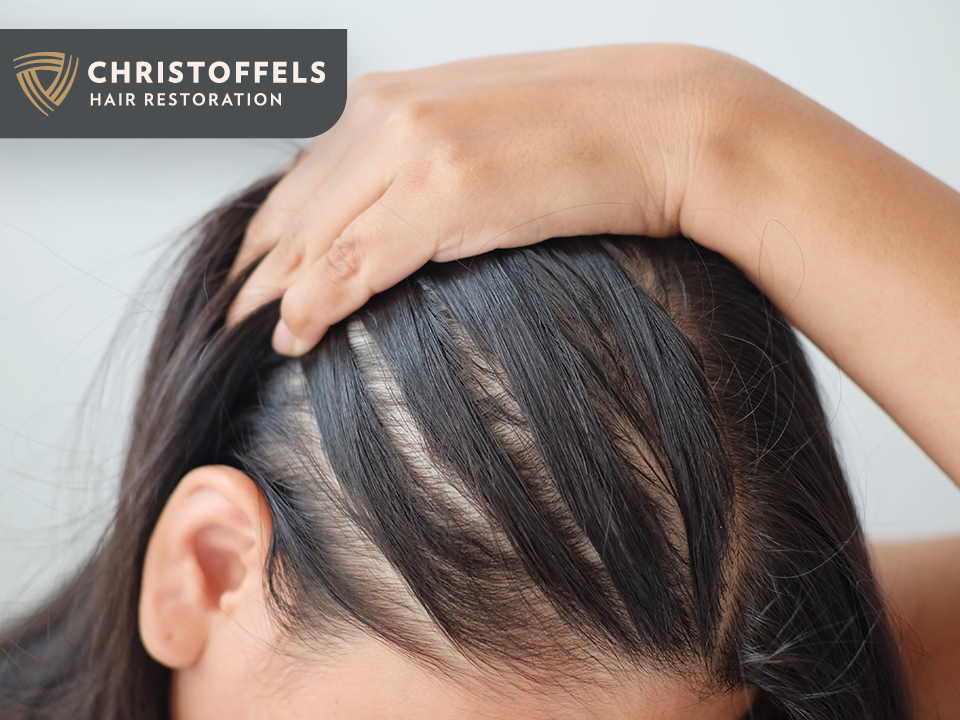Pulse of Information
Stay updated with the latest news and insights.
Hair Today, Gone Tomorrow: The Surprising Science Behind Hair Loss
Unlock the secrets of hair loss! Discover the shocking science behind thinning hair and what you can do to keep your locks intact.
Understanding the Hair Growth Cycle: Why We Lose Hair
The hair growth cycle is a complex process involving three main phases: anagen, catagen, and telogen. The anagen phase is where hair actively grows and can last for several years, contributing to the overall length of hair. Following this, the catagen phase is a transitional stage lasting a few weeks, during which hair growth slows down and the hair follicle shrinks. Finally, during the telogen phase, hair rests for a few months before eventually shedding. This cyclical process means that it is perfectly normal to lose about 50 to 100 hairs a day as part of a healthy hair growth cycle.
Understanding why we experience hair loss can help alleviate concerns related to hair thinning and baldness. Factors such as genetics, hormonal changes, and environmental influences can disrupt this cycle, resulting in excessive shedding or stunted growth. For instance, hormonal imbalances caused by conditions like pregnancy or menopause can trigger changes in the hair growth cycle, leading to pronounced hair loss. Additionally, stress and nutritional deficiencies play a crucial role in how healthy our hair remains. Addressing these underlying issues can help maintain a balanced hair growth cycle and promote overall hair health.

Common Myths About Hair Loss Debunked
Hair loss is often surrounded by many common myths that can contribute to misconceptions about its causes and treatments. One prevalent myth is that wearing hats or helmets can lead to hair loss. In reality, while hats may cause some temporary hair breakage due to friction, they do not affect the hair follicles or contribute to conditions like androgenetic alopecia. Another misconception suggests that excessive washing can accelerate hair loss; however, maintaining a clean scalp is essential for hair health, and washing does not inherently cause hair to thin.
Another myth is that only men experience significant hair loss. While it's true that male pattern baldness is more visible, women can also suffer from hair loss, often due to hormonal changes, genetics, or stress. Additionally, many people believe that dietary deficiencies can be directly linked to hair loss. While nutrition plays a role in hair health, hair loss is usually determined more by genetic and hormonal factors rather than simply the lack of specific vitamins or minerals. Understanding these common myths about hair loss is crucial for those looking to prevent or treat this condition effectively.
What Are the Most Effective Treatments for Hair Loss?
Hair loss can be a distressing experience for many individuals, but there are several effective treatments available that can help restore hair growth and improve confidence. The most recognized options include minoxidil, a topical solution that stimulates hair follicles and is suitable for both men and women, and finasteride, an oral medication primarily used by men to prevent further loss and promote regrowth. In addition to these, platelet-rich plasma (PRP) therapy has gained popularity, using the patient's own blood components to encourage hair regeneration and thickness.
Other holistic and natural approaches may also play a significant role in treating hair loss. Techniques such as low-level laser therapy (LLLT) can enhance blood flow to hair follicles, while a balanced diet rich in vitamins and minerals (including biotin, zinc, and iron) is essential for maintaining healthy hair growth. Regular scalp massages, promoted in traditional practices, can also stimulate circulation and enhance overall hair health. Consulting with a dermatologist is vital to determine the most suitable treatment plan based on individual needs and the underlying causes of hair loss.